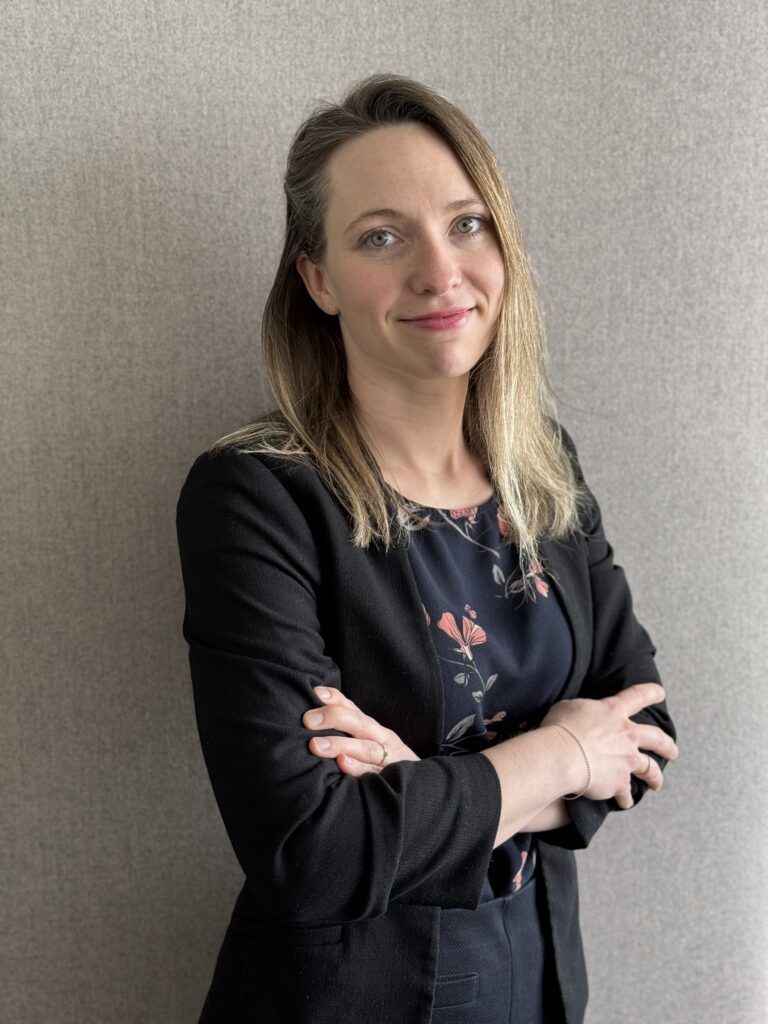Our new CSR Officer Karoline Angerer explains how geography lessons sparked her interest in sustainability, why she doesn’t make private trips by plane any more, and how she plans to make use of her extensive knowledge of environmentally friendly business practices at GoodMills.
Karoline, how well placed is GoodMills when it comes to sustainability?
Our comprehensive energy monitoring system, the carbon footprint analysis at the mills and investments in renewable energy sources are just a few of the numerous initiatives that we’ve successfully implemented over the past few years.
But we can’t stop there. We need to make our activities measurable. So the next step is to draft an updated sustainability strategy with clear objectives.
Where does the focus lie?
Sustainable business is a matter for each and every one of us, which means it’s important to work closely with suppliers and customers, and regularly provide them with information on the current situation. What’s more, we want to drive internal exchange and networking on ESG-related topics by means of training and other courses, so that our employees are clear about what we’re doing and why.
“We’re always there for our customers if they want to bounce ideas off us for decarbonising their supply chain.”
Which part of flour production generates the most CO2?
Actually, it’s out in the fields: grain cultivation, in particular when fertilisers are used. According to our in-house studies, in many cases with regenerative grains we’ve seen reductions in emissions of 20-30% or more per tonne of grain. This is our starting point, and we want to become the knowledge leader in sustainable cultivation. We’ve already launched a flagship project in Poland in cooperation with customers and farmers. We plan to extend this to other countries. To get projects like this off the ground, it’s essential that we get our customers on board. And if any of them are interested in doing so, I’d be delighted to invite them to take part. We’re always there for our customers if they want to bounce ideas off us for decarbonising their supply chain.
What is the biggest challenge in this respect?
Unlike with other raw materials, there are no established supply chain certification standards for regenerative grains. In most cases, certifications are decentralised, which means we have to examine them carefully before offering them to our customers.
“According to our in-house studies, in many cases with regenerative grains we’ve seen reductions in CO2 emissions of 20-30% or more per tonne of grain.”
Climate change has had a particularly severe impact on grain cultivation. How is GoodMills addressing the topic of supply security and pricing?
This is still one of our primary focuses. It’s important that we always keep an eye on the risks: where does our grain come from? Are the growing regions equipped to deal with future climate-related challenges? As far as pricing is concerned, it’s all a question of pragmatism. We offer a broad range that extends from conventional to organic. I firmly believe we’ll find a way to make sure that flour remains affordable for everyone in the future.
“We want to become the knowledge leader in regenerative agriculture.”
How did you become interested in sustainability?
For me, it all goes back to a geography lesson. Although we learned about climate change, there was only half a page on it in the textbook. That unsettled me so much that I started looking into the subject in more detail myself, and, ultimately, I went on to do my degree in sustainability and the environment.
What role does sustainability play in your personal life?
I lead a minimalist life. As a mother of two, I believe I have a responsibility to pass on sustainable values to them, such as making careful use of valuable resources. I want the world I leave behind for them to be in the same state as I found it. Separating waste and – where possible – buying organic food are a given for us anyway, and as a family we also try to keep our environmental impact as small as possible. I’m a fan of healthy, calculated pragmatism – I can’t remember the last time I took a private trip by plane.
“I want the world I leave behind for my children to be in the same state as I found it.”
In profile
Karoline Angerer studied environmental and bioresource management at the University of Natural Resources and Life Sciences, Vienna (BOKU) before completing her master’s in technical environmental management and toxicology at Technikum Wien University of Applied Sciences. After spells at OMV and EY, where she worked in climate change and sustainability services, the 36-year-old switched to the food industry. She held the post of Corporate Responsibility Manager at supermarket chain Hofer, with responsibility for sustainable supply chain management, for two years. In 2025 she moved from packaging company Mondi to the GoodMills Group and since the start of this year she has overseen all of the group’s international sustainability management activities.
